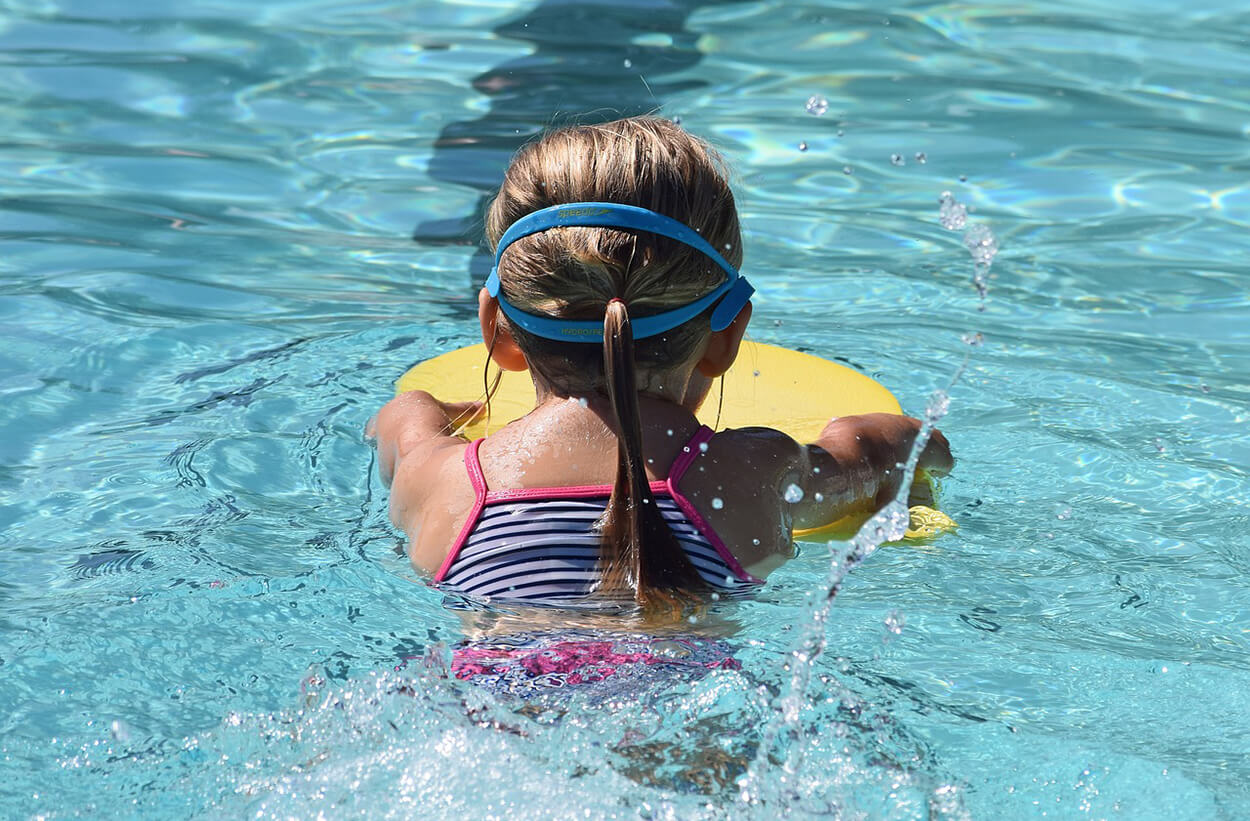
Pediatrician Warns: Drowning Cases Expected to Increase this Summer

As coronavirus cases in Arizona rapidly increase, experts are worried that canceling summer activities like sports, camps and school will put kids at an increased risk of drowning.
Every week, 12 children die of drowning in the U.S. It is the leading cause of accidental death in ages 1-4, even more than car accidents. Due to COVID-19, experts fear this rate will be even higher this summer.

Why are drowning cases expected to increase?
Due to COVID, we are seeing the canceling of many summer team sports, camps, summer schools and other activities that keep kids out of the house, which means children will be spending more time quarantining at home. This increased time at home means more exposure to their pool and thus, more chances to have an accidental drowning. Inflatable pool sales have skyrocketed as parents struggle to find things for their kids to do this summer and more pools equals more drowning. In addition, with home schooling now the norm, parents are taking on the additional role of teacher, which means their attention/supervision is now even more divided.
What should the public know?
Probably the most important Drowning prevention message I have:
Whether it’s your own pool or a neighbor’s pool or a community pool, first start with a mentality that any body of water is a real and constant drowning risk. We can’t drown proof children, so we need layers of protection.
The layers of protection include:
- Swim lessons for children one-year and up show a clear reduction in drowning rates.
- Adding a physical barrier like a pool fence and self-closing/self-locking doors that lead to the pool have shown to reduce drowning by 50 percent. This is important because most drownings happen during non-swim time — when no one is thinking about drowning.
- Having the three C’s of supervision during swim time.
- Constant supervision because drowning can happen in a matter of seconds. Even walking away to take another child to the bathroom is enough time for a drowning to occur.
- Close supervision because drowning doesn’t occur like the movies with a lot of splashing and yelling, its often a silent event, so parents need to be close by.
- Capable supervision means an adult, not an older sibling that may become distracted.
- Don’t depend on inflatable floaties as drowning prevention, as they are considered toys. Use only Coast Guard approved life jackets.
Should parents be sure they are getting CPR certified for these situations?
Getting CPR trained is definitely a good idea and at least one person should be CPR trained if there are children in a body of water.
What layers of protection should parents take when taking their children to the pool?
In regards to COVID, if it is a public pool, continue to social distance both in an out of the pool. If you don’t think your children are old enough to distance themselves, think twice about going to a public pool. For children two and above, wear a cloth mask out of the pool, but never in the pool as this itself could be a drowning hazard. If any of your children have symptoms of fever, cough, runny nose, diarrhea please refrain from swimming.
Are swim lessons okay to get with COVID-19 worsening in Arizona?
Every parent will need to weigh the risk and benefits for themselves, but in general swim lessons are a must if your child is going to be spending any time near water this summer. Swim lessons can be done with measures to prevent COVID transmission:
- No swimming if the instructor or any student has any symptoms of fever, cough, runny nose, diarrhea.
- Social distancing prior to and during lessons.
- Wearing masks prior to the start of the lessons.
- The swim instructor can wear a protective cloth mask in the pool.
What is the likelihood of getting COVID-19 in a community pool? Is it okay to use your HOA community pool or go to a water park?
The CDC states there is currently no evidence of transmission in pools as long as the water is adequately chlorinated. The CDC also released guidelines for public pools, which include regularly disinfecting commonly touched surfaces on the pool deck and in the locker rooms — like pool ladders, water slides, chairs/table tops etc. Again, every parent will need to decide for themselves the risks and benefits from using their community pool.
About the College
Founded in 2007, the University of Arizona College of Medicine – Phoenix inspires and trains exemplary physicians, scientists and leaders to advance its core missions in education, research, clinical care and service to communities across Arizona. The college’s strength lies in our collaborations and partnerships with clinical affiliates, community organizations and industry sponsors. With our primary affiliate, Banner Health, we are recognized as the premier academic medical center in Phoenix. As an anchor institution of the Phoenix Bioscience Core, the college is home to signature research programs in neurosciences, cardiopulmonary diseases, immunology, informatics and metabolism. These focus areas uniquely position us to drive biomedical research and bolster economic development in the region.
As an urban institution with strong roots in rural and tribal health, the college has graduated more than 1,000 physicians and matriculates 130 students each year. Greater than 60% of matriculating students are from Arizona and many continue training at our GME sponsored residency programs, ultimately pursuing local academic and community-based opportunities. While our traditional four-year program continues to thrive, we will launch our recently approved accelerated three-year medical student curriculum with exclusive focus on primary care. This program is designed to further enhance workforce retention needs across Arizona.
The college has embarked on our strategic plan for 2025 to 2030. Learn more.